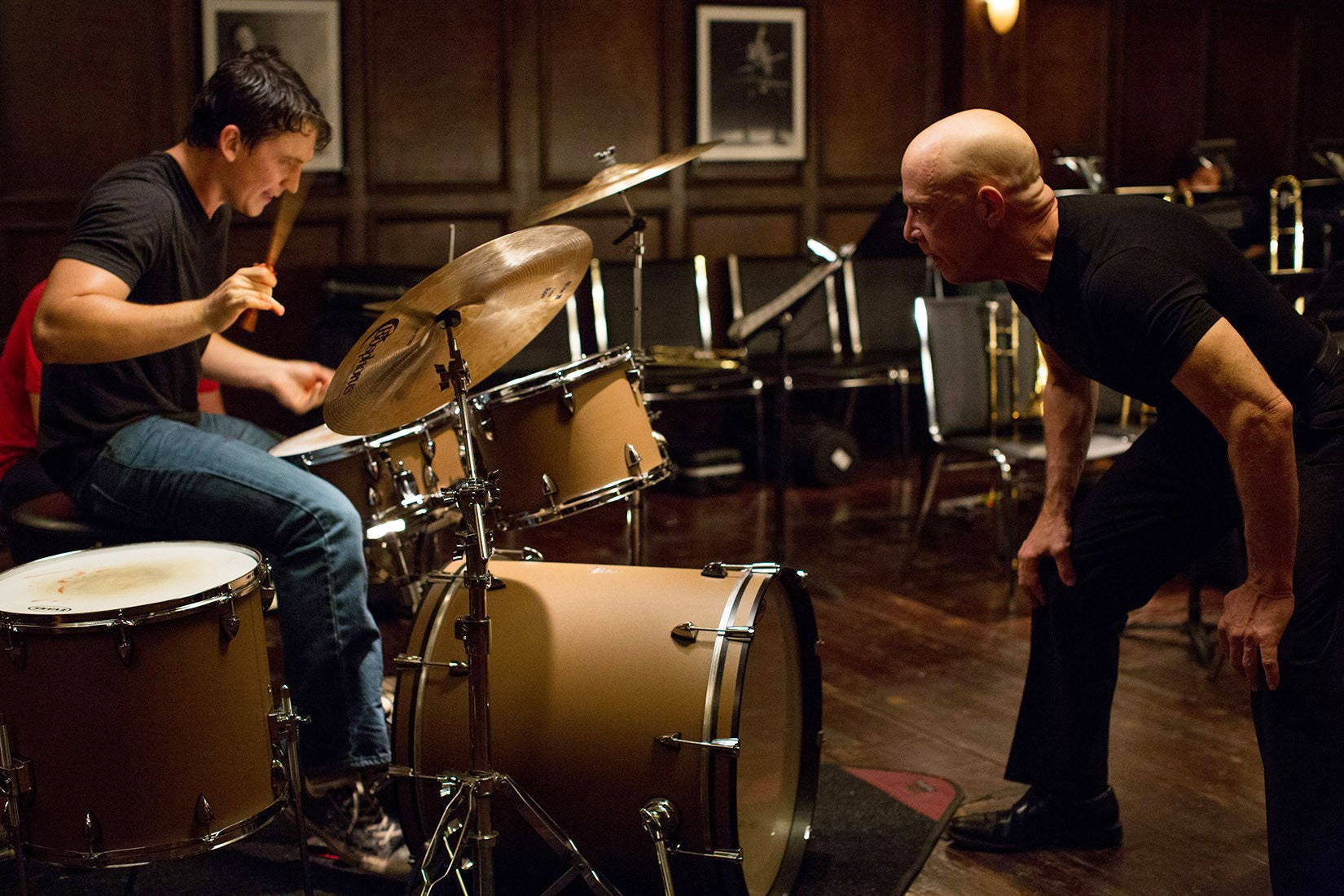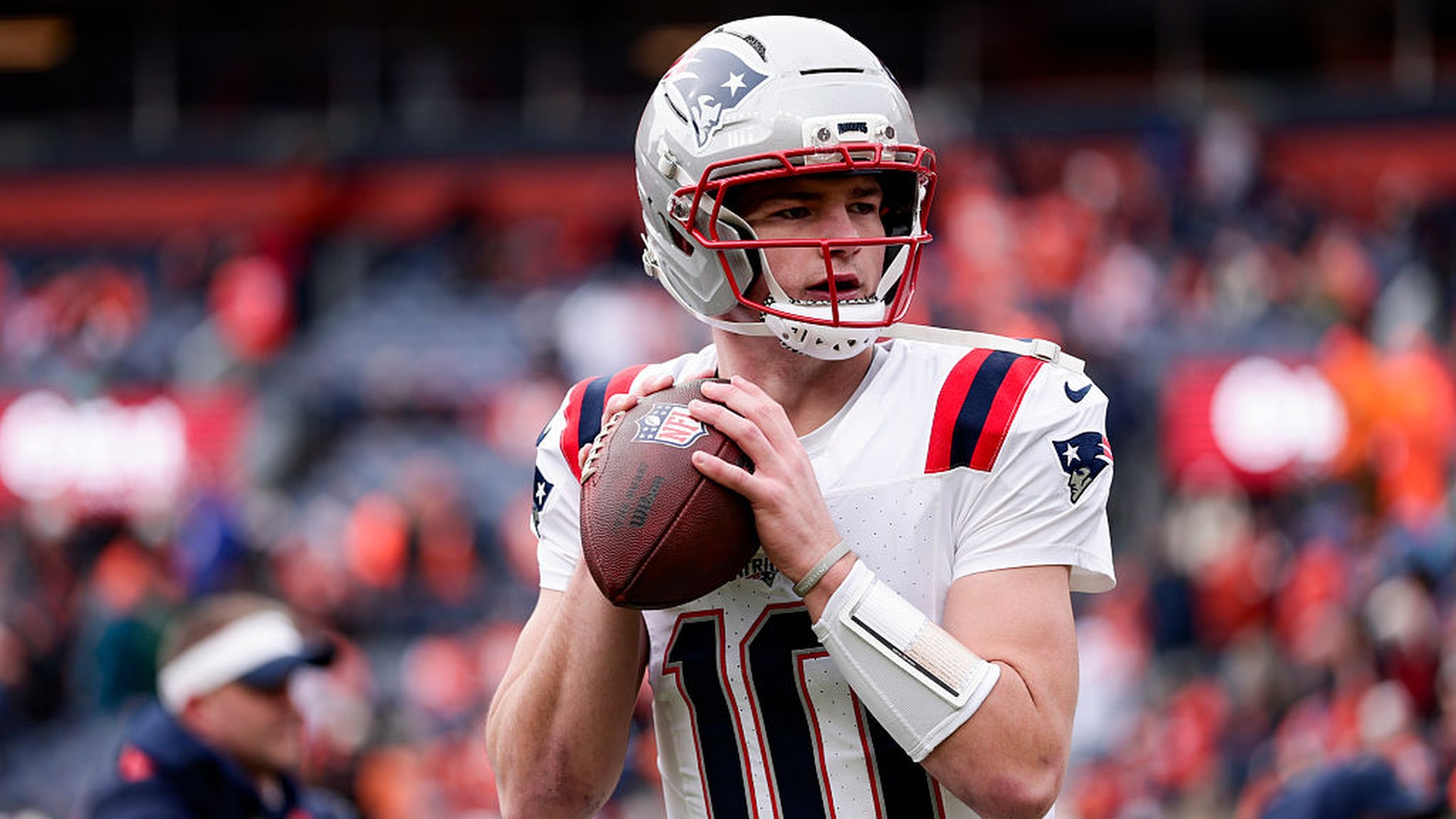'Whiplash' and the backbeat of a perfectly dysfunctional partnership
'Whiplash' attracted criticism upon its release for depicting a deeply unhealthy teacher-student dynamic. But what does that relationship look like in 2020?

The latest updates, reviews and unmissable series to watch and more!
You are now subscribed
Your newsletter sign-up was successful
Want to add more newsletters?

ONCE A WEEK
What to Watch
Get all the latest TV news and movie reviews, streaming recommendations and exclusive interviews sent directly to your inbox each week in a newsletter put together by our experts just for you.

ONCE A WEEK
What to Watch Soapbox
Sign up to our new soap newsletter to get all the latest news, spoilers and gossip from the biggest US soaps sent straight to your inbox… so you never miss a moment of the drama!
Six years isn’t a lot of time, but it can be forever in terms of social progress - or if not quite that, then for cultural norms to shift. When Whiplash was released in 2014, it drew (deserved) critical praise along with a fertile but arguably understated discussion about the perspective of its characters, an ambitious student drummer and his abusive instructor seeking greatness at all costs. The movie remains a masterpiece, one of the most striking directorial debuts of the last decade, and an absolutely mesmerizing character study. But even if Damien Chazelle’s breakthrough reckons narratively with the personal, organizational and legal repercussions, its story arrived at a time not when it was possible, but let’s say easier to question just how dysfunctional the relationship is between young Andrew Neiman (Miles Teller) and overbearing Terence Fletcher (J.K. Simmons) without culture shouting an irrefutable answer in response.
But now? It feels almost as if it would be considered irresponsible to tell a story like Chazelle’s, much less equivocate about whether or not there’s anything understandable, much less appropriate, within it. Whiplash recently arrived on 4K UHD, truly the best way to watch its rich cocoonlike, claustrophobic interiors and the musical fits and starts that emerge from this battle of wills between teacher and student. Meanwhile, their relationship - in conflict and concert - has aged beautifully and profoundly to explore even more deeply the romantic misconceptions about discipline, dedication, commitment and sacrifice required to achieve the precision and perfection that they seek from opposite sides.
Cinema history, and much less musical history, is littered with stories of artists committed to perfecting their work at the expense of friends, family, health, commercial success, life itself. Via Fletcher in the film, Chazelle embellishes the true story of Jo Jones and Charlie Parker, suggesting by proxy that it was a formative moment unleashing Parker’s developing brilliance when the former threw a cymbal at the latter’s head during a recording session. (Spike Lee’s woefully underappreciated Mo’ Better Blues similarly depicts a struggle for balance between brilliant Bleek Gilliam’s (Denzel Washington) all-consuming focus on his trumpet playing and the career, the disruptive friendships, and the women that come between him and his instrument.)
Of course, it should be most telling that Fletcher says he never had a Charlie Parker to bestow with the benefit of his hard-driving genius. He’s aspiring to a myth that never really happened and anointing himself the kingmaker whose protégé is just one near-miss with a music stand away from destiny. But what emerges more clearly now is the way in which their relationship is not just (and not necessarily) deeply unhealthy but uniquely reciprocal, as Andrew’s belief in his own potential greatness - or at least the aspiration towards it - justifies Fletcher’s abuse, not just in his development but psychologically. It’s not about the unhappiness of the moment, the humiliation and belittiling, but the perceived growth that occurs afterwards when Andrew has blocked out all other influences and turned over his life to practicing.
Oddly, I was reminded during this most recent viewing of Paul Thomas Anderson’s Phantom Thread, as well as David Cronenberg’s Crash, two stories about abuse and trauma that attempt to reach equilibrium through unconventional means. It doesn’t matter that we’d never want to be in a relationship with Reynolds Woodcock, or be sexually aroused by automobile accidents; what’s important is that we understand why Alma or James Ballard would. I don’t think Chazelle is arguing for the health or rightness of this monstrously abusive relationship between Fletcher and Andrew. He’s observing that greatness comes at a tremendous cost, and that when two individuals dedicate themselves together to achieving it, and they both understand it, that cost can be worth it.
That idea, of course, probably seems wildly inappropriate, even preposterous in a culture dedicated to imposing trigger warnings and eliminating microaggressions in all of their multidimensional forms. And to be sure, creating the maximum opportunity for people to be involved, to be included, and for them to flourish without sociocultural obstacles, much less the level of physical and emotional abuse that Fletcher unleashes on his students, should be nurtured, encouraged, and reinforced. But again, I don’t think that the movie is doing anything more than prompting viewers to understand the dynamic between these two characters, even and especially when the others in the film itself do not. Girlfriend Nicole (Melissa Benoist) feels like the single, short-lived vestige of a normal collegiate experience that Andrew has otherwise surgically removed from his life, and realized that the only support system he needs is his Fletcher’s merciless tutelage. His accomplishments give him superiority when his social skills fail. And his fellow musicians - as Fletcher skillfully picks up on - offer an incentive for him to practice longer, and work harder.
Even after attacking Fletcher on stage at a competition, leading to him being kicked out of school and his teacher being fired, Andrew does not seem to feel resentment. He clearly thinks Fletcher was giving him something meaningful, even if his father and a lawyer representing another of Fletcher’s former students thinks it’s abuse. And frankly, it is abuse. Fletcher terrorizes Andrew and his other students. It feels truly unimaginable to consider taking his class, of trying to survive his cruelty in exchange for his musical “direction.” But when Andrew sits across from Fletcher in the jazz club as he discusses Charlie Parker and that ennobling pursuit of greatness - itself an oppressive, ambiguous concept - he honestly looks like he’s in love with his teacher. That is an emotional note that we not only watched earlier when Andrew and Nicole bonded over pizza at the beginning of their short-lived relationship, but seen in dozens upon dozens of love stories where two individuals shared a profound, deep and unique bond of recognition that connects and protects them from the world around them. When Fletcher observes "There are no two words in the English language more harmful than 'good job'," that's a call to arms. Mediocrity is not an option. "Just okay" is abject failure.
The latest updates, reviews and unmissable series to watch and more!
Is that wrong or fucked up or immoral? Possibly. Andrew is a young man, a young person, and they are frequently (and understandably) intoxicated by delusions of grandeur, aspiring to follow in the footsteps of their idols, to make their mark, without fully understanding what sacrifices they do and will have to make. So then in a 2020 cultural context, the question becomes whether or not his family, or we as a society, have protected him from the influence of a person who poisoned his expectations and altered his belief system to think this is the only path that will lead him to that noble destination. Or, did that person merely clarify those beliefs, sharpen his focus, and connect him to a kindred, if decidedly anachronistic spirit? There’s no easy answer, because one choice denies Andrew the agency of discovering himself and his potential, and the other exposes him to possible self-destruction.
The way those thoughts reverberate through this film as it builds to a triumphant climax - as the teacher recognizes the autonomy of the student, and the two work together towards a singular greatness - only resonate longer and more deeply in the years since its release. Chazelle has unsurprisingly gone on to tell two more stories about ambition, inflexibility, loss, redemption and balance, working in different moods to explore those ideas through a decidedly more accessible framework (the arc of a relationship in La La Land) and the harrowing emotional terrain of scientific history projected against unimaginable personal tragedy (the moon landing in First Man). And those are both really great films. But whether you prefer their polish, their growth, their refinement or maybe just their subject matter, Whiplash is the one that still resonate the most strongly to me; I am not a musician, I never had a mentor whose expectations I struggled to meet, and I’m pleased to say that my relationships are healthier and much more balanced. But as a story, it’s my tempo.
Todd Gilchrist is a Los Angeles-based film critic and entertainment journalist with more than 20 years’ experience for dozens of print and online outlets, including Variety, The Hollywood Reporter, Entertainment Weekly and Fangoria. An obsessive soundtrack collector, sneaker aficionado and member of the Los Angeles Film Critics Association, Todd currently lives in Silverlake, California with his amazing wife Julie, two cats Beatrix and Biscuit, and several thousand books, vinyl records and Blu-rays.


